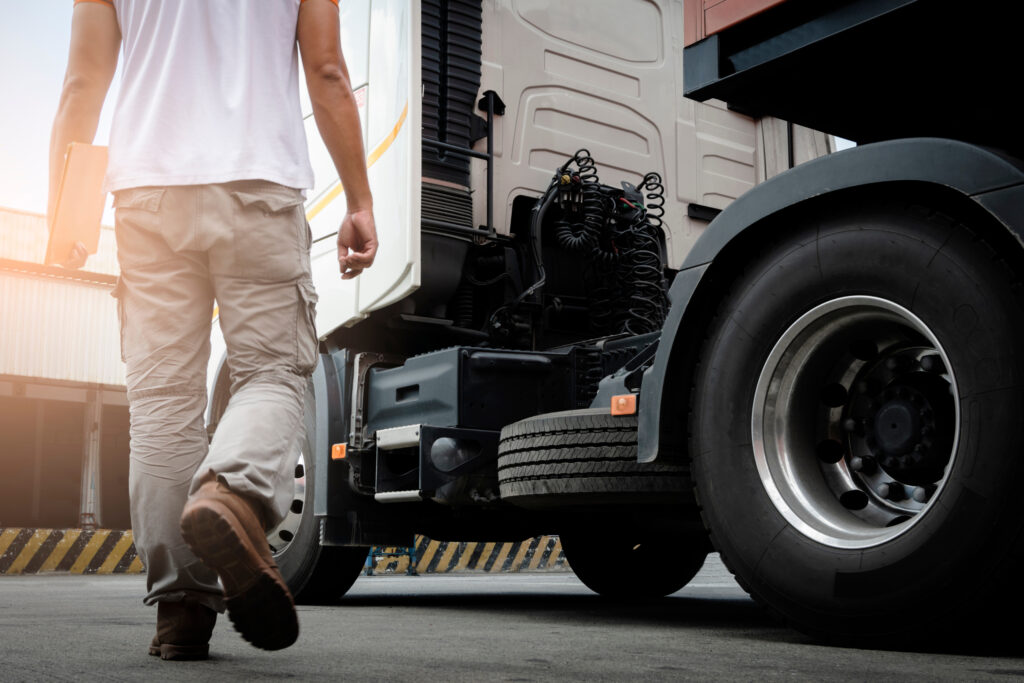How E-commerce Impacts the Trucking Industry?
The trucking industry has been crucial to the nation’s ability to move commodities for many years. Getting items from their origin to retail shelves has traditionally been done efficiently and effectively with the help of commercial vehicles. However, since 2000, e-commerce sales have been gradually increasing.
E-commerce transactions made up 0.08% of all retail transactions in 2000. In the first quarter of 2020, 11.5% of all retail sales in the United States were made through e-commerce. COVID-19 may have significantly increased these percentages. Retail e-commerce sales rose by 31.8 percent from the first quarter of 2020 to the second quarter of 2019, according to the Census Bureau.
The widespread pandemic might have contributed to the dramatic rise in e-commerce sales. Instead of going out, several folks purchase their necessities through online platforms. That, however, is just one aspect of the growth of e-commerce.
E-commerce business has had a significant impact. The convenience of online shopping has contributed to its popularity. Additionally, it promotes increased competition, which results in more options and cheaper pricing. With the growing popularity of smartphones and tables, anyone can purchase from any location. E-commerce is no longer just confined to your home computer.
Other regions are also impacted by the expansion of the e-commerce sector. For instance, the techniques utilized to deliver those goods are affected by the rise in online sales. The supply chain for online retailers is very different from that of your local business. The shift in how we shop has an impact on the transportation sector, especially the trucking industry.
The shift in how we shop has an impact on the transportation sector, especially the trucking sector. What effects will the present e-commerce trend have on the transportation sector both now and in the future?
6 Effects of E-commerce in the Trucking Industry

1. The Need for Quicker Shipping Speed
Numerous internet businesses guarantee two or three-day delivery. Large online competitors like Amazon are fueling the need for faster shipment. To compete, other businesses must guarantee same-day or next-day delivery. As part of their e-commerce supply chain, Amazon and other retailers use their own trucks and drivers. To stay in the supply chain for online sales, the trucking industry is compelled to make promises about faster delivery periods.
For trucking services and truck drivers, shortened delivery windows and quicker turnaround times can enhance productivity. Compressed delivery windows, however, could lead to trucking mishaps and liabilities. The cargo trucking company and drivers may flout hours-of-service rules to maintain fierce competition.
The role of truckers has changed as a result of e-commerce. To meet these demands, e-commerce truckers are developing new strategies. Shorter pickup and delivery jobs are replacing interregional or national haul jobs. This indicates that rather than traveling long distances, truck drivers operate in smaller areas.
2. Decreased Transporting Expenses, Warehouses and Fulfillment Centers
The cost of shipping is a crucial aspect that affects a consumer’s choice to buy a product. Many stores provide free shipping on the majority of their merchandise or free shipping with a minimum purchase. Smaller shipping firms like FedEx, Amazon, and United Parcel Service, might not be able to compete with them in the e-commerce supply chain. Therefore, it may cause many small enterprises to fail.
The building of warehouse and fulfillment centers enables major online merchants to provide same-day and next-day shipping. The centers are placed in the key areas to enable the store to deliver the product to customers fast.
The trucking industry is impacted by fulfillment centers and warehouses in a few different ways. Since they are home more frequently, many truck drivers may favor short hauls. There is no reason to travel for a week and log several thousand miles.
3. Innovation in technology and efficiency
Several technological developments over the past few years have aided in the efficiency of the trucking industry. A cargo trucking company can compete more successfully with other businesses and vast fleets of online retailers by becoming more efficient. Dynamic routing helps cut down on idling miles between locations. Truck drivers can prevent truck accidents with the help of safety technology including driver assistance, collision mitigation, and forward-looking camera systems. For many trucking logistics and retailers, truck accidents have a substantial financial cost.
Most commercial trucks are now obliged to have electronic recording devices, which helps stop some trucking company and truck drivers from going over the allotted driving time limits. Some businesses attempted to gain an advantage over their rivals by exceeding those hours by guaranteeing earlier product delivery dates.
4. The Availability of Trucking Employment
If the desire for e-commerce business persists, there might be more openings for truck driver positions. Large retailers may expand their fleet, but as they look for efficient management of the e-commerce supply chain, large retailers may grow their fleet size, but they may also outsource more work to trucking companies.
The increasing demand for local truck driver jobs and intrastate positions as a result of e-commerce causes truck drivers to spend more time at home. As a result of e-commerce reducing the length of trips, truckers may be able to spend more time out of the truck, which may have health benefits compared to driving eight to ten hours per day for years.
But if there is a continued scarcity of drivers, there may be a greater risk to the health and wellness of truck drivers, which may result in a greater likelihood of accidents. For the safety of the driver, compliance with safety requirements is essential.
5. Stress on Vehicles and Infrastructure
Speedy turnaround times and a surge in online ordering may lead to more trucks on the city streets. Congestion in places already congested by heavy traffic can increase if the number of truck trips to transport goods rises.
Heavy trucks making more trips on roads and bridges that weren’t built for them can cause damage to them. This problem might put strain on a region’s infrastructure. Vehicle safety may be impacted by damaged roadways, Commercial truck brake failure could be caused by a combination of increased traffic and the stress that an inadequate infrastructure places on the vehicle.
6. The Supply Chain for E-commerce Could Help the Trucking Industry
If e-commerce keeps growing, trucking logistics will see both benefits and drawbacks. The industry’s structure could, however, alter. It’s possible that more local delivery-focused businesses will use fulfillment centers. Further analysis and data are needed to figure out the long-term consequences of e-commerce on the transportation business.
Contact a Trusted Trucking Company in San Diego
A trucking logistics company that offers the best deals in the country. Four Sons Logistics Trucking Company, offers efficient and fast services in the e-commerce trucking industry. Throughout the whole duration of the service, expect the utmost professionalism and extensive services to ensure that you get your money’s worth.
If you want guaranteed quality trucking services, you can directly message their website or you can contact Four Sons Logistics.




